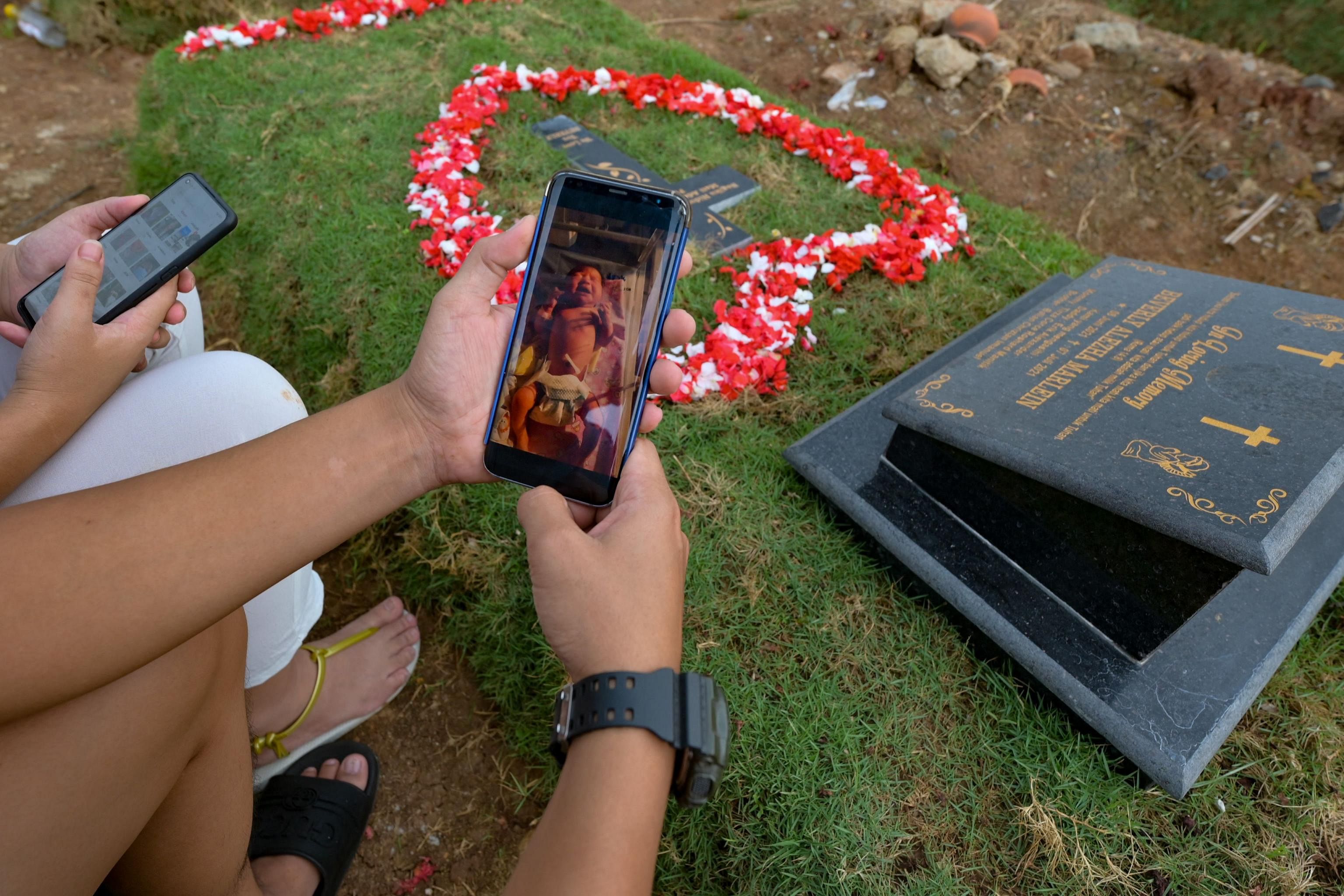JAKARTA (AFP) - Tirsa Manitik gave birth to her first girl in June and buried her a month later - another casualty of virus-battered Indonesia's soaring child death toll.
The South-east Asian nation has been hit by its worst Covid-19 surge yet as the ultra-infectious Delta variant sent deaths skyrocketing and left a trail of devastated parents in its wake.
"My heart is broken. It really hurts," Ms Manitik, 32, said at a Jakarta cemetery as she and her husband sprinkled flower petals in the shape of a heart over their daughter's grave. "I miss her every day."
Indonesia has one of the world's highest Covid-19 mortality rates for children, according to its paediatric association and NGO Save the Children. Officially, about 400,000 Indonesians under 17 have been infected during the pandemic, although under-reporting and patchy testing make comparative figures difficult to come by.
The virus has killed over 1,200 children - nearly half under one year old - with the majority dying in June and July as cases surged, according to health ministry data and experts. Poor nutrition, inadequate healthcare and low vaccination rates are among the factors driving the frightening trend.
Parents unwittingly exposing children to infected family and friends is another likely culprit, experts said. Ms Manitik and her husband, who also have an 11-year-old boy, saw a string of relatives arrive at their Jakarta home to welcome baby Beverly.
Joy quickly turned to worry as the family all started getting sick. And then the news came that no parent wants to hear: The newborn was seriously ill.
As cases soared in Indonesia's sprawling capital, Ms Manitik raced from one bursting hospital to another in a desperate bid to get treatment.
But Jakarta's healthcare system was teetering on the brink of collapse, forcing hospitals to treat gasping patients in makeshift tents outside while desperate families raced to find oxygen tanks to treat the sick and dying at home.
"I was devastated when we were turned away (from hospitals)," Ms Manitik said. "I had the virus then too, but I had to fight for my baby."
Finally, a friend helped find a hospital that would treat Beverly as the respiratory disease attacked her little lungs. But the baby died in intensive care about a week later - just days after the virus also killed her paternal grandfather.
"She was very strong. Doctors said she could only survive for three days, but she didn't give up easily," Ms Manitik said. "Beverly was 29 days old."

Now, Ms Manitik lives with the grief of losing her child, and the couple's fateful decision to meet family. "We were all so happy about the baby that we hung out at our house," she said. "I don't want to blame my relatives because we still don't know where the virus came from."
Group gatherings have emerged as a key route for infecting children - a challenge in a country where large get-togethers with family and friends are common.
"Sometimes Indonesian parents act as if health protocols apply to only adults, not children," said Dr Hermawan Saputra at the Indonesian Public Health Experts Association. "Infections in children are strongly linked to parents' behaviour and tracing."
Save the Children warned that the tragedy of Indonesia's child deaths was compounded by the thousands of other children orphaned after the virus killed their parents.
"Until now, children have been the hidden victims of this pandemic," said the group's Asia health adviser, Mr Yasir Arafat. "Not anymore."
Access to proper nutrition and regular vaccinations for other illnesses were limited in the midst of the pandemic, while obesity, diabetes and other health problems could also be putting children at greater risk from Covid-19, experts said.
Indonesia, where less than 10 per cent of its 270 million people are fully inoculated with two jabs, last month began vaccinating 12- to 17-year-olds and pregnant women.
"Newborns will be more protected if pregnant women are vaccinated," said Mr Edhie Rahmat, executive director for Project Hope in Indonesia.

